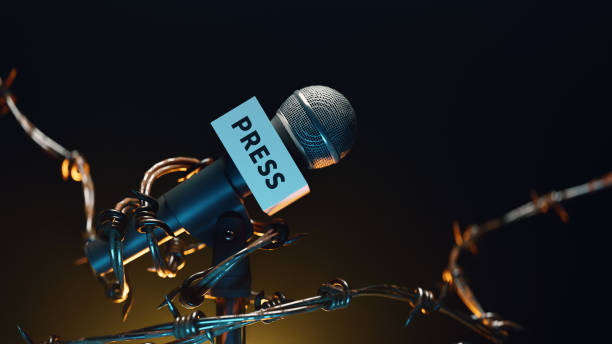THE recent abductions of Mr. Abdulgafar Alabelewe of The Nation and Mr. Abdulraheem Aodu of Blueprint, along with their families, in Kaduna’s Danhono 2 community, underscore a disturbing trend of increasing attacks on journalists in Nigeria. This latest incident adds to a troubling pattern of harassment and violence against media professionals by both state and non-state actors, further highlighting the perilous environment for journalists in the country.
In May, Madu Onuorah, the Publisher and Editor-in-Chief of Global Upfront Newspaper was forcibly taken from his home in Abuja by officers of the Nigeria Police Force. The officers neither presented a warrant nor disclosed the reasons for his arrest, reflecting a blatant disregard for legal procedures and press freedom. Such incidents are not isolated; they are symptomatic of a broader, systemic issue where journalists are targeted with impunity, creating a climate of fear and intimidation.
Nigeria’s placement on the 2024 World Press Freedom Index by Reporters Without Borders (RSF) as one of West Africa’s most dangerous countries for journalists is telling. Ranking 112th out of 180 countries, the report highlights the constant harassment, attacks, and arbitrary abductions that journalists in Nigeria face. This position on the index is not just a number but a stark reminder of the precarious situation for media practitioners in Nigeria. The RSF report poignantly states that any journalist considering their vocation in Nigeria would be wise to explore opportunities in 111 other countries first, a damning commentary on the state of press freedom in the country.
Since Nigeria’s return to democracy in May 1999, the Media Rights Agenda reported that 19 journalists have been brutally murdered. This alarming statistic underscores the lethal risks faced by those committed to uncovering the truth and holding power to account. The Universal Declaration of Human Rights, particularly Article 19, guarantees freedom of expression, which includes media freedom. However, the reality in Nigeria starkly contrasts with these international standards. The United Nations emphasizes that an independent, free, and pluralistic media is central to good governance in both young and mature democracies, yet Nigeria continues to lag in safeguarding these fundamental principles.
The persistent abductions and attacks on journalists in Nigeria demand urgent and decisive action to stem this worrisome trend. To effectively address this issue, it is crucial to adopt a multi-faceted approach that encompasses legal reforms, enforcement of existing laws, and fostering a culture that values and protects journalistic integrity.
Firstly, there must be a robust legal framework that explicitly protects journalists and their right to report freely. Existing laws that criminalize defamation, Cyberbullying and sedition need to be reformed to prevent their misuse against journalists. Legal provisions should be strengthened to ensure that any attack on a journalist is met with swift and severe penalties. This would not only deter potential perpetrators but also send a clear message that the state values press freedom.
Additionally, law enforcement agencies must be trained and sensitized on the importance of press freedom. The arbitrary arrests and detentions of journalists, as seen in the case of MaduOnuorah, highlight a worrying disregard for due process. Police and other security forces should be educated on the legal rights of journalists and the critical role they play in a democratic society. There must be accountability mechanisms in place to address any abuse of power by state actors.
The role of the judiciary is also paramount in protecting press freedom. Courts should act as impartial arbiters that uphold the rights of journalists and ensure that any legal actions against them are based on clear and justifiable grounds. Judicial independence is crucial in this regard, as it provides a check against the misuse of laws to stifle dissent and critical reporting.
Furthermore, there must be a concerted effort to foster a culture of respect for journalists and their work. Media organizations, civil society, and international bodies need to collaborate in raising awareness about the vital role of the press in a democratic society. Public campaigns that highlight the contributions of journalists to society and the risks they face can help garner public support for press freedom.
International organizations and foreign governments also have a role to play. They should continue to pressure the Nigerian government to uphold international standards of press freedom. Diplomatic channels can be used to advocate for the safety and security of journalists, and international bodies can provide support and protection for journalists at risk.
By taking these steps, Nigeria can move towards a future where journalists can work without fear, contributing to a more transparent, accountable, and democratic society. The safety of journalists is not just a concern for the media but for everyone who values truth, justice, and democracy.


